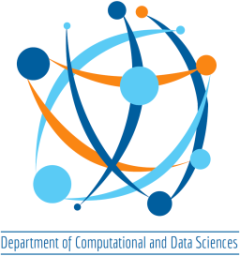Department of Computational and Data Sciences
Department Seminar
SPEAKER : Dr. Jim Shaw, Department of Mathematics at the University of Toronto
TITLE : “Computational profiling of microbes in environments: pitfalls, controversies, and solutions”
Date & Time : March 11, 2024, 09:00 AM
Venue : The Seminar will be held on MICROSOFT TEAMS. Please click on the following link to join the Seminar:
ABSTRACT
DNA sequencing technology now allows researchers to detect the microorganisms in your microbiomes, such as your gut, skin, and even blood. Computational methods for analyzing this data have enabled insights into the relationship between our microbiomes and human health. DNA sequencing data, however, is notoriously messy; computational methods are also imperfect.
In this talk, I will first discuss how extremely subtle algorithmic issues have led to controversy in the biological literature, including suspicion about a landmark paper in the study of cancer microbiomes. After giving an overview of the computational issues surrounding this field, I will present our new computational method for profiling microbiomes called sylph (Shaw and Yu, 2023, bioRxiv). While sylph has high accuracy and is > 30 times faster than previous methods, I will focus on why our new method works. More generally, I will discuss the process of designing practical algorithms for complicated biological data, which I believe is a treacherous but extremely rewarding process.
BIOGRAPHY
Jim Shaw is a PhD candidate in the Department of Mathematics at the University of Toronto under the supervision of Prof. Yun William Yu. His research centers on developing efficient software and methods for computational biology from a mathematical point of view, with a heavy emphasis on bridging the gap between theory and biological discovery. Jim is supported by an NSERC CGS-D, and prior to his PhD, he received a BASc in Engineering Physics and Mathematics from the University of British Columbia.
Host Faculty: Dr. Chirag Jain
ALL ARE WELCOME



